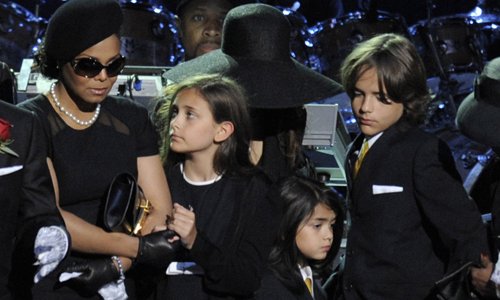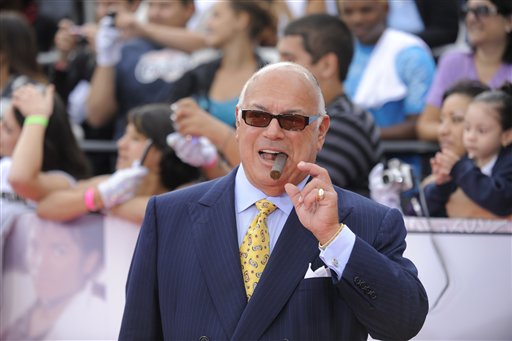I’m finally getting to write about my friend Frank Dileo, who died yesterday at age 63. Frank was Michael Jackson’s loyal and brilliant manager and friend, the architect of his success and his amazing career. You want to know about “Thriller”? It was Frank, “Bad”? Frank again. It was Frank who sat through Michael’s child molestation trial in 2005 in Santa Maria, California, far from his home in Ohio, at his own expense.
It was Frank who returned in the spring of 2009 to keep Michael on the straight and narrow so he could rehearse for his London concert dates. It was Frank who kissed Michael on the forehead, closed his eyes in the emergency room, and went out to tell Michael’s kids that their father had died. For Michael, Frank was always there.
I met Frank a long time ago, but we bonded during that trial. He’d come to god forsaken Santa Maria barely able to see. He had severely limited vision due to glaucoma and diabetes, and was waiting for an operation. He couldn’t drive, so I was his self appointed chauffeur. It was a long trial, and it wasn’t like Michael was in any shape to acknowledge Frank or to thank him. But he hung in there, and was a particular friend to Katherine Jackson, who attended the trial every day.
What Frank didn’t want to concede was that the Jacksons were notoriously disloyal. While the trial raged on, Michael’s former chief of security and surrogate father, Bill Bray, lay dying in a hospital bed in a little house in Los Angeles near the 10 freeway. Michael and all the Jacksons had simply dropped him. Bray, who I visited a few times, was semi-comatose and cared for by his lady friend. She wondered what had happened to the Jacksons. They were gone.
When the trial was over, and Michael hotfooted it to Bahrain and other locales, Dileo was similarly cut off. It wasn’t until Michael was in dire financial straits, and struggling to prepare for London, that he called on Frank. Dileo was there in a flash. He was the most loyal friend you could ask for. Again, he came at his own expense. Even though he’d lived high during the 80s with Michael, Frank didn’t make out like some of Jackson’s other advisers. His attitude was, you don’t ask. You wait for someone–Michael, Sony–to do the right thing. They never did.
I digress. Frank had the worst health imaginable. Forget the stuff people in the record business did in those crazy Eighties. He smoked stogies, ate thick steaks, liked a good scotch. He loved The Palm in Nashville, and the breakfast room at the Beverly Hilton. At the latter he’d become a fixture in the last couple of years, moving in to help Michael and staying–even though he had a wonderful and understanding wife, Linda, and kids Belinda and Dominic, back in Ohio. He became the mascot of the Beverly Hilton. When he got sick this past spring, the staff came to Cedars Sinai and held prayer vigils. They were that fond of him.
Do nice guys finish last? I don’t think so. Frank played mobsters in movies like “Goodfellas” and liked to act tough, but he was a sweetheart. If only he’d been a little terrifying or threatening maybe he’d have made more money. But he led with his heart, and that always gets you into trouble. Was he disillusioned with Michael’s executors? Yes. He brought John Branca back into Michael’s life six weeks before Jackson died. With Branca came the utterly useless John McClain, who resented Frank and did everything he could to blunt his participation. The lackluster performance of the “Michael” album, which Frank tried to guide, can be laid at McClain’s feet.
Since Frank’s illness–resulting from triple bypass surgery in March–I have to say that the estate has been incredibly helpful, however. The details are private. But when Frank’s family needed support they got it. So you have to balance these things out.
So what now? I’m going to do what Frank did to stay healthy: fruit for breakfast, with bacon and French toast. And remember my friend, who was barely five feet tall, but was a giant among men.




